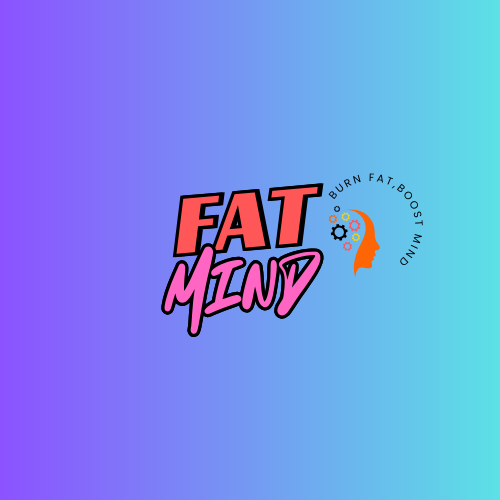Introduction
Omega-3 fatty acids are often praised for their heart health benefits, but their role in fat loss and brain function is just as crucial. These essential fats, found in fatty fish, flaxseeds, and walnuts, help regulate metabolism, reduce inflammation, and enhance cognitive performance.
But how exactly do omega-3s influence belly fat reduction and mental clarity? This article explores the science behind their fat-burning properties, brain-boosting effects, and the best ways to include them in your diet.
How Omega-3s Help with Fat Loss
Boosts Metabolism for Efficient Fat Burning
- Omega-3s enhance mitochondrial function, helping cells convert fat into energy more efficiently.
- Studies show that higher omega-3 intake increases resting metabolic rate, leading to more calorie burn even at rest.
Reduces Inflammation Linked to Belly Fat
- Chronic inflammation contributes to fat accumulation, especially in the abdominal area.
- Omega-3s lower inflammatory markers, making it easier for the body to shed excess fat.
Improves Insulin Sensitivity and Fat Storage
- Poor insulin sensitivity leads to fat storage around the midsection.
- Omega-3s help regulate blood sugar and insulin levels, preventing excess fat accumulation.
Supports Appetite Control and Satiety
- Omega-3s increase leptin sensitivity, the hormone responsible for feeling full.
- This helps reduce cravings and overeating, making weight management easier.
How Omega-3s Improve Mental Clarity and Brain Function
1. Enhances Brain Cell Communication
- The brain is nearly 60% fat, and omega-3s play a vital role in maintaining brain cell structure and function.
- They improve neurotransmitter signaling, leading to better memory, focus, and learning.
2. Reduces Brain Inflammation and Protects Against Cognitive Decline
- Just as omega-3s fight inflammation in the body, they also protect brain cells from oxidative stress.
- This reduces the risk of brain fog, memory loss, and age-related cognitive decline.
3. Increases Brain-Derived Neurotrophic Factor (BDNF)
- BDNF is a growth factor that helps create new brain cells and strengthens neural connections.
- Higher omega-3 intake is linked to better cognitive performance and reduced mental fatigue.
4. Regulates Mood and Reduces Stress
- Omega-3s support serotonin production, the neurotransmitter responsible for mood balance.
- Studies show they help reduce anxiety, depression, and stress-related mental fog.
Best Sources of Omega-3s for Fat Loss and Brain Health
1. Fatty Fish
- Salmon, mackerel, sardines, and trout are the richest sources of omega-3s.
- Aim for 2-3 servings per week to maximize benefits.
2. Plant-Based Sources
- Flaxseeds, chia seeds, and walnuts provide ALA (alpha-linolenic acid), a plant-based omega-3.
- While ALA is beneficial, it must be converted into EPA and DHA, which the body does inefficiently.
3. Omega-3 Supplements
- Fish oil or algae-based supplements are excellent options for those who don’t eat enough fatty fish.
- Look for products with high EPA and DHA content for maximum effectiveness.
How to Maximize Omega-3 Absorption
1. Pair with Healthy Fats
- Combining omega-3s with olive oil, avocados, or nuts enhances absorption.
2. Avoid Excess Omega-6 Intake
- Too many vegetable oils (soybean, corn, sunflower oil) can block omega-3 absorption.
3. Stay Consistent
- Omega-3 benefits build over time, so regular intake is key for fat loss and mental clarity.
Conclusion: A Simple Yet Powerful Tool for Fat Loss and Brain Health
Omega-3s offer a natural and effective way to reduce belly fat and enhance cognitive function. By lowering inflammation, improving insulin sensitivity, and supporting brain health, they serve as an essential component of a holistic approach to weight loss and mental well-being.
To experience these benefits, prioritize fatty fish, plant-based sources, or high-quality supplements and maintain consistency in your diet.
FAQ
1. How long does it take to see results from omega-3 intake?
Fat loss and cognitive improvements may become noticeable within 4-6 weeks of regular omega-3 consumption.
2. Can omega-3s help with stress and anxiety?
Yes, omega-3s support serotonin production, reducing stress, anxiety, and mood swings.
3. Is fish oil better than flaxseed oil for omega-3s?
Fish oil is superior because it contains EPA and DHA, which are directly usable by the body, while flaxseed oil provides ALA, which must be converted.
4. Can omega-3s prevent memory loss?
Regular omega-3 intake supports long-term brain health and may reduce the risk of neurodegenerative diseases like Alzheimer’s.
5. How much omega-3 should I take daily?
The recommended intake is 250-500 mg of combined EPA and DHA per day, though higher doses may be beneficial for certain conditions.
